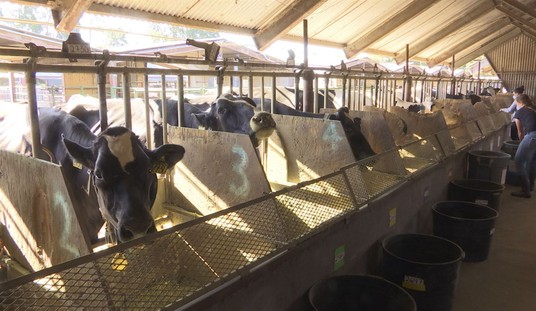"I'm gonna create borders," Donald Trump promised during his 2016 campaign. "No drugs are coming in. We're gonna build a wall. You know what I'm talking about. You have confidence in me. Believe me, I will solve the problem."
Trump did not, in fact, solve the problem: The annual number of drug-related deaths in the United States rose by 44% between 2016 and the last year of his first term. Now Trump blames foreign officials for his failure, which is why he decided to impose punitive tariffs on China, Mexico and Canada until they take "adequate steps" to stop "dangerous narcotics" from entering our country.
That benchmark, which is now the focus of negotiations aimed at avoiding a potentially disastrous trade war, is deliberately vague, with good reason. The huge profits generated by drug prohibition give criminal organizations a powerful incentive to find ways around government-erected obstacles, which explains why politicians have never managed to "stop the flow" of illegal intoxicants.
That challenge is magnified by illicit fentanyl, the main culprit in drug deaths. Fentanyl production, which does not require crops, is much cheaper and easier to conceal than heroin production, and it can be done anywhere in the world.
"At present," the Congressional Research Service noted last year, "most U.S.-destined illicit fentanyl appears to be produced clandestinely in Mexico, using chemical precursors from China." Trump wants the Chinese government to crack down on companies that produce those precursors.
As The New York Times reported in December, Mexican cartels already have a backup plan. They are recruiting "chemistry students studying at Mexican universities" to synthesize fentanyl precursors, "freeing them from having to import those raw materials from China."
Recommended
Trump thinks the Mexican and Canadian governments could do more to shut down fentanyl manufacturing within their countries. But to the extent they succeeded in doing that, production would simply shift elsewhere, as has happened repeatedly with drugs such as cocaine, heroin and methamphetamine.
Despite his manifest failure to keep drugs from "coming in" during his first term, Trump is still holding out the vain hope that, with the coerced assistance of Mexico and Canada, he can "seal the border." That mission was always impossible, and it is further complicated by fentanyl's potency, which allows traffickers to transport large numbers of doses in small packages.
Mexican drug cartels "move illicit fentanyl into the United States, primarily across the southwestern border, often in passenger vehicles," the CRS noted. "The U.S. Department of Homeland Security asserts that 90% of (seized) fentanyl is interdicted at ports of entry, often in vehicles driven by U.S. citizens. A primary challenge for both Mexican and U.S. officials charged with stopping the fentanyl flow is that (the cartels) can meet U.S. demand with a relatively small amount."
Finding those small amounts among the hundreds of thousands of cars and trucks that cross into the United States from Mexico and Canada each day is a daunting task, and even attempting it in a serious way would impose intolerable burdens on international travel and trade. Despite Trump's promise to "seal the border," the White House concedes that "federal officials are only able to seize a fraction of the fentanyl smuggled across the southern border."
It gets worse. Although vehicular transportation across the southern border currently seems to be the main route for fentanyl, that is not the only option. Fentanyl also enters the United States by mail, and it is not feasible to intercept all of those shipments, especially given their small size and the enormous volume of packages.
"Drugs are pouring in at levels never seen before," Trump complained in December, explaining the motivation for his new tariffs. He was referring to drug seizures, which rose dramatically after he left office.
That trend, Trump assumed, was a sign of failure, indicating an increased supply. Yet now he is claiming that more of the same will somehow mean victory in the unwinnable war on drugs.

























Join the conversation as a VIP Member